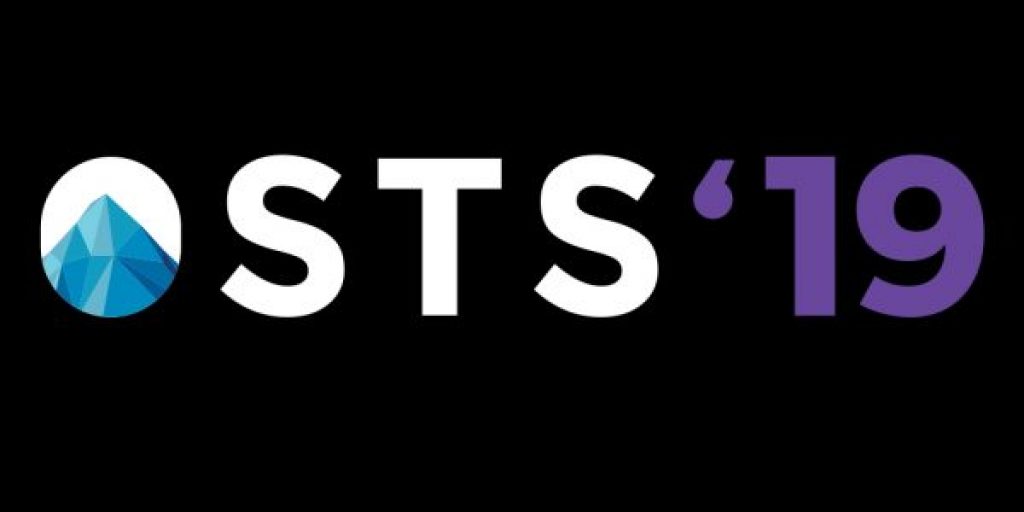May 14, 2019 – What’s New: Intel is hosting the annual Open Source Technology Summit (OSTS) May 14-16. What started as an internal conference in 2004 with a few dozen engineers now brings together 500 participants. This year is the most open yet, with leaders from Alibaba*, Amazon*, AT&T*, Google*, Huawei*, JD.com*, Microsoft*, MontaVista*, Red Hat*, SUSE* and Wind River* taking part in discussions of open source software that is optimized for Intel hardware and will drive the next generation of data-centric technology in areas such as containers, artificial intelligence (AI), machine learning and other cloud to edge to device workloads.
“OSTS is at its heart a technology conference, and it’s the depth of technical content, engineering engagement and community focus that make the summit so valuable. This year we’re open-sourcing our open source summit, inviting customers, partners and industry stakeholders for the first time. I’m excited by the opportunity to connect the community with the amazing people who are driving open source at Intel.”
–Imad Sousou, Intel corporate vice president and general manager of System Software Products
The Details: The latest contributions Intel is sharing at OSTS represent critical advances in:
- Modernizing core infrastructure for uses well-suited to Intel architecture
- ModernFW Initiative has the goal to remove legacy code and modularize design for scalability and security. By delivering just enough code to boot the kernel, this approach can help reduce exposure to security risks and help ensure management is easier for users.
- rust-vmm offers a set of common hypervisor components, developed by Intel with industry leaders including Alibaba, Amazon, Google and Red Hat to deliver use-case specific hypervisors. Intel has released a special-purpose cloud hypervisor based on rust-vmm with partners to provide a more secure, higher performance container technology designed for cloud native environments.
- Intel is also committing to advancing critical system infrastructure projects by assigning developers to contribute code, as well as incorporating our “0-day Continuous Integration” best practices to technologies beyond the Linux* kernel. Projects Intel plans to contribute to include (but are not limited to) bash*, chrony*, the Fuzzing Project*, GnuPG*, libffi*, the Linux Kernel Self Protection Project*, OpenSSH*, OpenSSL* and the R* programming language.
- Enhancing Intel Linux-based solutions for developers and partners: Intel’s Clear Linux* Distribution is adding Clear Linux Developer Edition, which includes a new installer and store, bringing together toolkits to give developers an operating system with all Intel hardware features already enabled. Additionally, Clear Linux usages are expanding to provide end-to-end integration and optimization for Intel hardware features and key workloads supporting the Deep Learning and Data Analytics software stacks. The performance, security, ease-of-use and customization advantages make Clear Linux a great choice for Linux developers.
- The Deep Learning Reference Stack is an integrated, highly-performant open source stack optimized for Intel® Xeon® Scalable Processors. This stack includes Intel® Deep Learning Boost (Intel DL Boost) and is designed to accelerate AI use cases such as image recognition, object detection, speech recognition and language translation.
- The Data Analytics Reference Stack was developed to help enterprises analyze, classify, recognize and process large amounts of data built on Intel® Xeon® Scalable platforms using Apache Hadoop and Apache Spark*.
- Enabling new usages across automotive and industrial automation: In a world where functional safety is increasingly important, workload consolidation is both complex and critical. And with the growing reliance on software-defined systems, virtualization has never been more important. Intel is working to transform the software-defined environment to support a mix of safety critical, non-safety critical and time critical workloads to help support automotive, industrial automation and robotics uses.
- Fusion Edge Stacks support the consolidated workloads that today’s connected devices demand using the ACRN* device hypervisor, Clear Linux OS, Zephyr Project* and Android*.
- The Intel Robot SDKbrings together the best of Intel hardware and software in one resource, simplifying the process of creating AI-enabled robotics and automation solutions, with an optimized computer vision stack.
Why It Matters: Open source powers the software-defined infrastructure that transformed the modern data center and ushered in the data-centric era. Today, the vast majority of the public cloud runs on open source software; new contributions by Intel are poised to drive a future where everything is software-defined, including new areas such as automotive, industrial and retail.
With more than 15,000 software engineers, Intel invests in software and the work on standards initiatives to optimize the workload and to unlock the performance of our processors. In addition to significant contributions to the Linux kernel, Chromium OS* and OpenStack*, Intel’s leadership in the open source community drives industry advancement that fuel new models for hardware and software interaction in emerging workloads.
Intel is in a unique position to bring together key industry players to address the complexity of building for diverse architectures and workloads and enable faster deployments of new innovations at scale. Software is a key technology pillar for Intel to fully realize the advancements in architecture, process, memory, interconnect and security.


